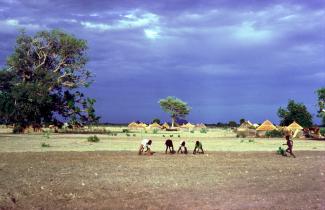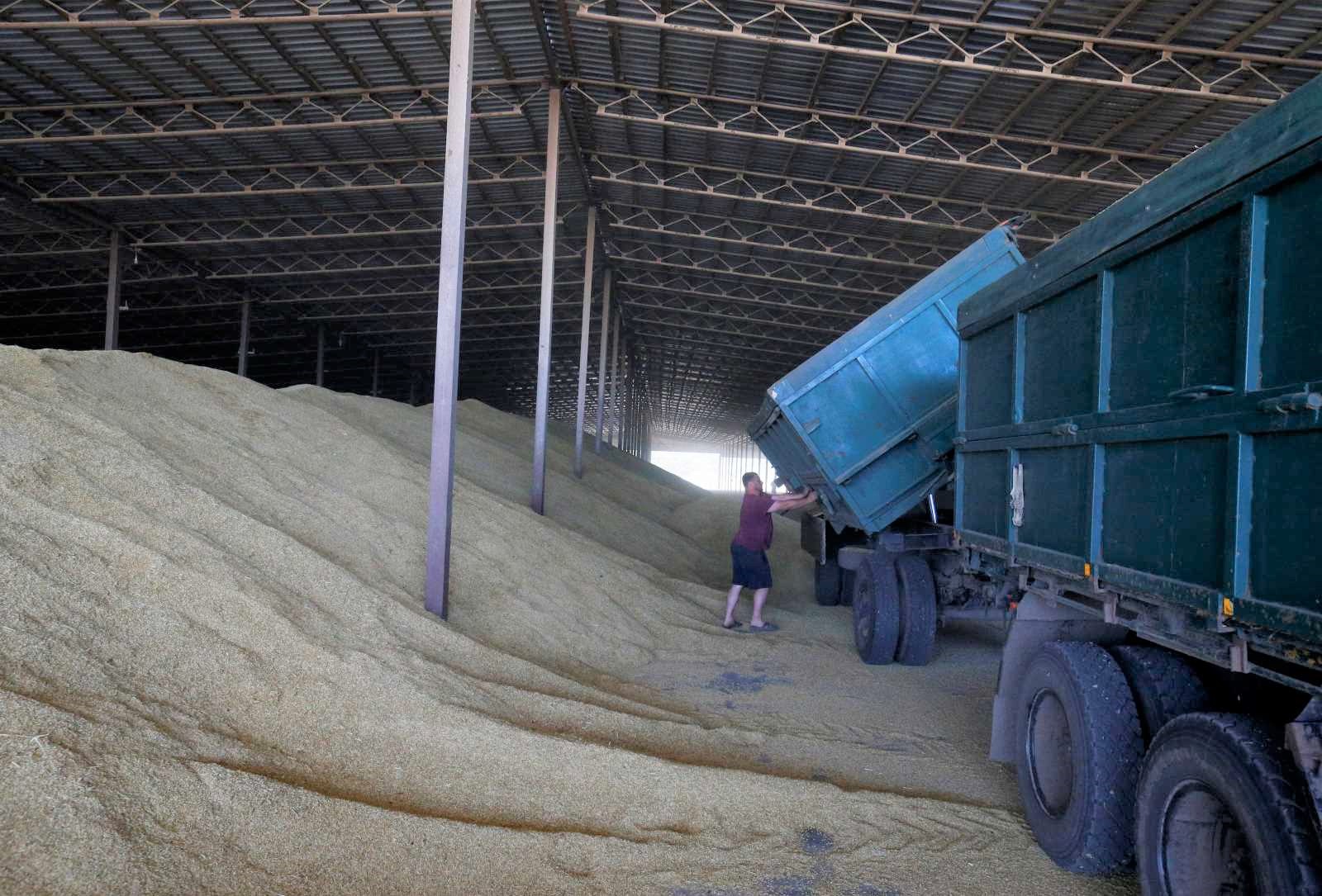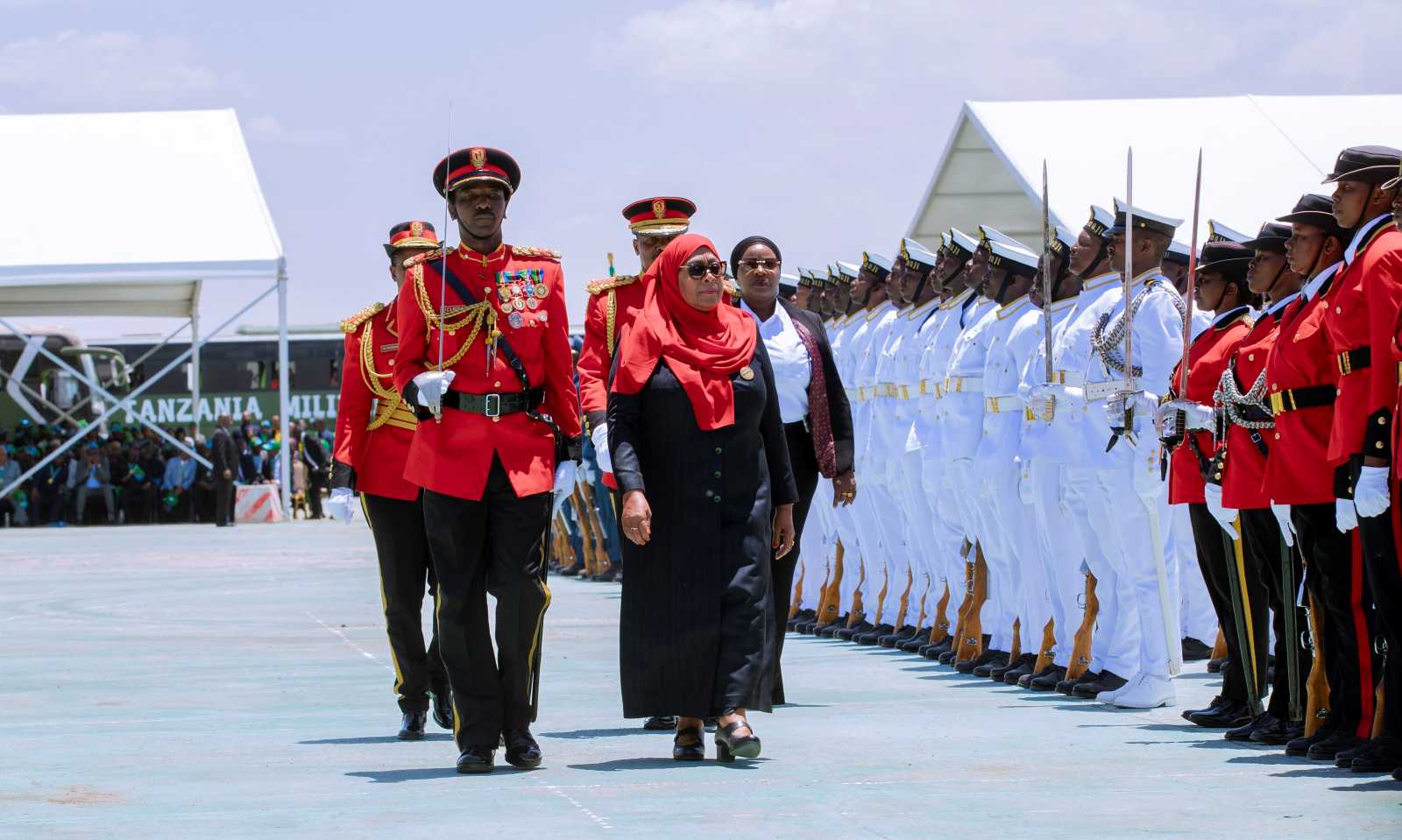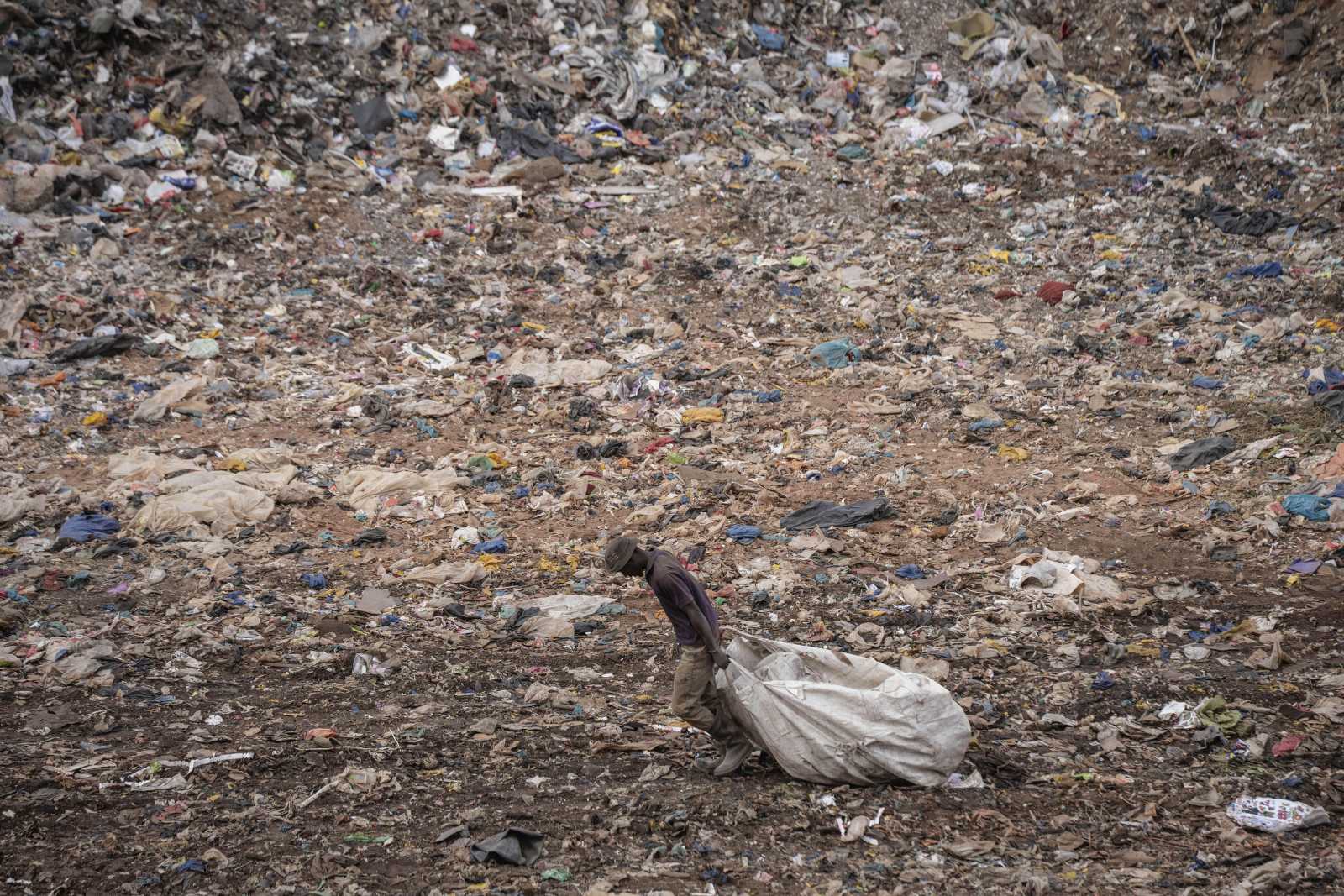Land grabbing
Damaging investments

Like every year, the IMF and World Bank will hold their spring meeting in April 2013. In March, Oxfam was busy preparing to rekindle a debate it started last autumn. Oxfam wants to draw attention to the World Bank’s involvement in land grabbing (see box).
In October 2012, Oxfam published the study “Our land, our lives”. It claimed that the World Bank’s support of agriculture investment has led to irresponsible land grabs and property speculation. The civil society organisation wants the Bank to freeze related loan operations for six months. Though the Bank agreed with aspects of Oxfam’s study, it has not acted on the moratorium so far.
Land grabbing
For a long time, agriculture in developing countries was of little interest to international investors. Africa in particular was seen as unprofitable. That changed in 2008, when food prices skyrocketed. Suddenly, interest in cropland arose. Governments hoped to safeguard access to food, while private investors understood that they could make profits from speculation. Trade in arable land increased rapidly. The Oxfam report examined the impact of this trend.
Essentially, humankind produces enough food for everyone, according to the authors of the study, and unfair distribution is the reason why many people stay hungry. Approximately 1 billion people can not afford the food they require. The global population may grow by another 2 billion people by 2050, however, so experts fear that agricultural land and other natural resources will become increasingly scarce.
The study found out that, in the past 10 years, up to 227 million hectares of land were sold in developing and emerging countries, or signed away as long-term leases. The total area is roughly six times the size of Germany. In the past two years, competition has intensified further, especially in sub-Saharan Africa. According to Oxfam, more than 60 % of the land deals concern countries that suffer poverty and hunger. This is considered worrisome since international investors are basically interested in exporting commodities to richer economies.
Irritating trends
Oxfam is in favour of investing in small farms in poor countries, strengthening local markets and fending off hunger and poverty thanks to the additional income generated. Responsible investment, the agency demands, must also protect natural resources and facilitate adaptation to climate change.
Most large-scale land transactions hardly contribute to those goals however. The Oxfam authors point out that these deals usually concern countries where state bureaucracies are weak and the rule of law deficient. To attract investors, some governments may have tried to improve the conditions for agriculture and food companies, but, according to Oxfam, they generally tend to neglect small farmers. “Strategies to tackle poverty and hunger basically only serve to support the growth of corporate agriculture and food industries in developing countries,” says Marita Wiggerthale of the charity’s Berlin office.
Some of the buyers and leaseholders of land in Africa, Asia, Latin America and Eastern Europe are investors from rich industrial countries and emerging powers like China and India. They want to secure affordable access to food and the raw materials they need to produce biofuels for example. At the same time, speculators too are becoming interested in land. Croplands often lay fallow because investors are waiting for a good moment to sell it for a hefty profit.
Above all, the Oxfam experts criticise that many big property deals neglect the traditional land rights of nomadic and indigenous people. Sometimes even existing land titles are disregarded, they state. Oxfam is vehemently opposed to illegally taking over or stealing land. Far too often, the experts state, rural people are brutally forced from their ancestral land:
- Between 2006 and 2010, at least 22,500 people in Uganda lost their cropland and their homes.
- In Cambodia, over half of the arable land has been sold to private companies.
- In Liberia, more than 30 % of the cropland has been sold to investors in the last five years without the consent of the local people.
If it had not been for such large-scale land transactions, everyone on Earth could now be getting enough food, Oxfam estimates. Land grabbing, however, is said to have exacerbated the misfortunes of poor and small farmers. The trend is making hunger and violence more likely, the civil-society activists argue, because the people concerned depend on their land to grow the food they cannot afford to buy.
Why the World Bank matters
In this context, Oxfam criticises the World Bank, saying it does not take seriously enough its triple role as financier of agricultural investments, policy advisor to governments of developing countries and standard-setter for other investors:
- In agriculture, the volume of development funding by the World Bank and by its subsidiary private-sector funding arm IFC (International Finance Corporation) rose from $ 2.5 billion 10 years ago to currently $ 6 billion to $ 8 billion. If cropland continues to be sold fast, World Bank financing will fuel conflicts with small farmers, Oxfam warns. So far, 21 communities from Africa, Latin America and the Asia-Pacific region have filed formal complaints. They are all about the Bank not involving people in decision making, Oxfam reports, and some people were resettled without getting any appropriate compensation.
- Foreign investors have profited most from the World Bank’s policy advice so far, Oxfam argues, since the Bank advised governments to attract foreign investors by offering tax exemptions for example. The charity warns that, unless there is stringent regulation, large land transactions basically add up to land grabs.
- The World Bank sets standards for others, including some 15 development finance institutions, 32 export credit agencies and 77 private investors. They all follow World Bank guidelines. According to Oxfam, however, the World Bank does not sufficiently enforce its own social and environmental standards in its own business (see Korinna Horta in D+C/E+Z 2013/03, p. 122 f.).
Therefore, Oxfam has called on the World Bank to freeze its land-related lending for six months. Such a freeze would allow the institution re-assess its agriculture investment business thoroughly. Four aspects matter, according to Oxfam:
- Existing land rights should be protected and responsible land management promoted. The rights of small farmers, women and other marginalised people must be strengthened fast. The World Bank should recognise traditional rights and ensure that they are taken into account in land transactions.
- The Bank should grant greater transparency. Smallholder farmers often do not know who is buying their land and what will be done with it. Intransparency promotes corruption.
- The principle of free, prior and informed consent of the local people (FPIC) must be embraced. It was first formulated in the context of the UN and has since been accepted by other international bodies. The IFC has adopted FPIC, for instance, but the World Bank has not.
- The Bank should ensure that the large agriculture investments it supports serve the food security of the local people. Natural resources and the environment need to be protected.
Response of the World Bank
In a press release of October 2012, the World Bank stated it shared Oxfam’s concerns about the potential risks of increasing land transactions. It agrees with Oxfam, moreover, on developing countries needing more investment in general. Both Oxfam and the Bank want economies to grow and create jobs, including for women.
At the same time, the financial institution denied Oxfam allegations. It declared that it does not support speculative investment in land, nor those who take advantage of weak institutions in developing countries. It also insisted that it does not support investments that do not conform with the principles of responsible agricultural investment. According to the World Bank, adequate safeguards are in place. It did acknowledge, however, that land sales are often not transparent, so abuses are possible. The core problem, according to the bank, is poor governance in developing countries.
The World Bank has not responded to Oxfam’s moratorium demand yet. It continues its operations, and points out that it is reviewing its environmental and social safeguard policies. Oxfam refuses to drop its demand, but wants to continue cooperation with the World Bank. “We work constructively in many policy areas with the World Bank,” said Oxfam’s Duncan Pruett. “We are working on a proposal for additional World Bank rules to ensure that the land rights of the population will not be violated.”
The charity is preparing extensive campaigns moreover. It believes that more and more meaningful investments in agriculture are necessary, and that this issue does not only concern the World Bank. Only with adequate research and proper protective measures will it be possible to ensure that investments do not lead to human-rights violations or environmental destruction, Oxfam argues. The governments of developing countries, however, must do more to regulate large-scale land sales, the charity states, since stringent laws for the sale of land are urgently needed to protect communities against land grabs.
____________________________________
D+C/E+Z Feedback from our readers:
Selfreliance is feasible
Agriculture will determine Africa’s future. Anyone who wants to fight poverty, must promote agriculture. But even though lots of arable land remains unused (up to 27 % of Earth’s remaining potential farm land is assumed to be in Africa), African countries import food worth $ 50 billion per year. Millions of jobs could be created by using land prudently. To reduce the dependence on food imports, African agriculture must become more productive. Unfortunately, food security is only a top priority in rather few African countries. Governments still don’t understand that agriculture is key to economic development. Selfreliance is feasible in Africa, however, as Malawi’s and Rwanda’s farm sectors have proven. Today, the Gulf States, China, South Korea, Russia and India are spearheading agrocapitalism in Africa. They want to ensure their own food security. In recent years, Ethiopia, Sudan, Uganda and Mali – countries prone to hunger crises – have leased huge landholdings to foreign powers. Some 45 million hectares of land are said to have been subject to such transactions since 2009. That is more land than all German woodlands combined. Instead of prioritising domestic food security, ruling elites are inviting rich investors to acquire ever more land. African peasants are simply displaced. Foreign countries’ food security is gaining priority on arable subSaharan land. At the same time, Brazilian biofuel producers are setting up sugar cane plantations in Africa. They need more resources as well as new markets – and Africa’s rural populations are paying the price. Whereas Brazil claims to fight poverty and hunger in Africa, its companies’ ethanol production is exacerbating poverty and hunger. The last thing Africa needs is foreign investors taking over farm land and, in cooperation with corrupt elites, marginalising rural people. Where governments act in a responsible and transparent way, taking people’s needs into account, foreign investments can be valuable. Land transactions, however, must neither infringe upon human rights (displacement), nor breach social and environmental standards. To the extent that jobs are created and technology is transferred, the people of a region can benefit from investments. Local farmers, however, are unlikely to get a fair share in the business unless a prudent government makes sure they do. African governments should bear in mind what happened in Madagascar in 2008. The country’s president was chased away because of obscure landdeals with the South Korean multinational Deawoo. Volker Seitz, Six Fours les Plages, France








